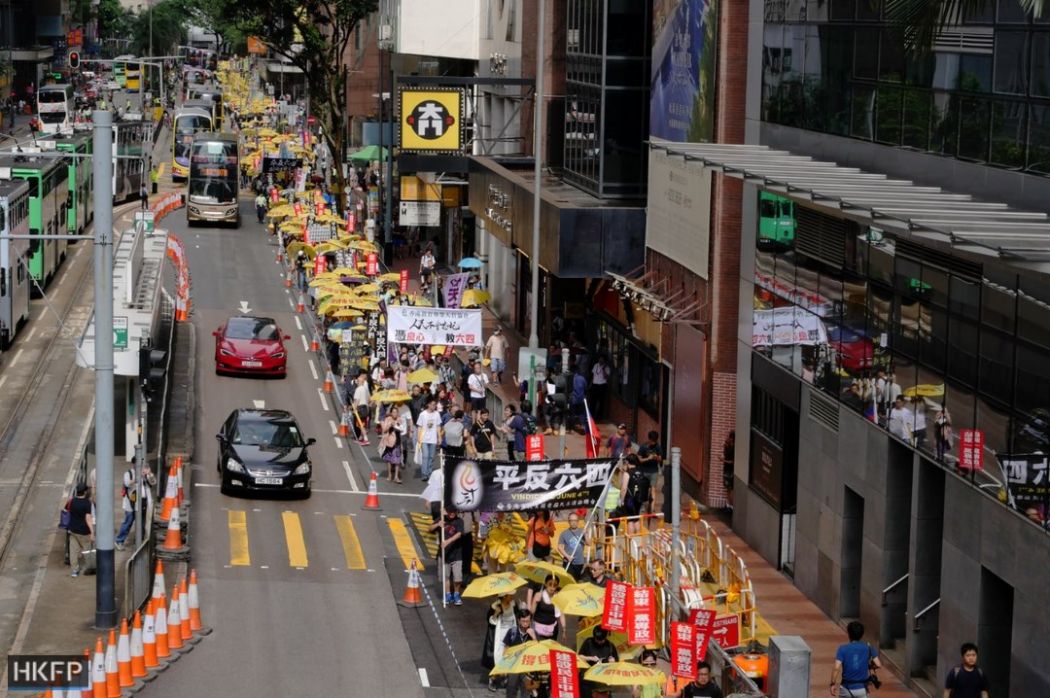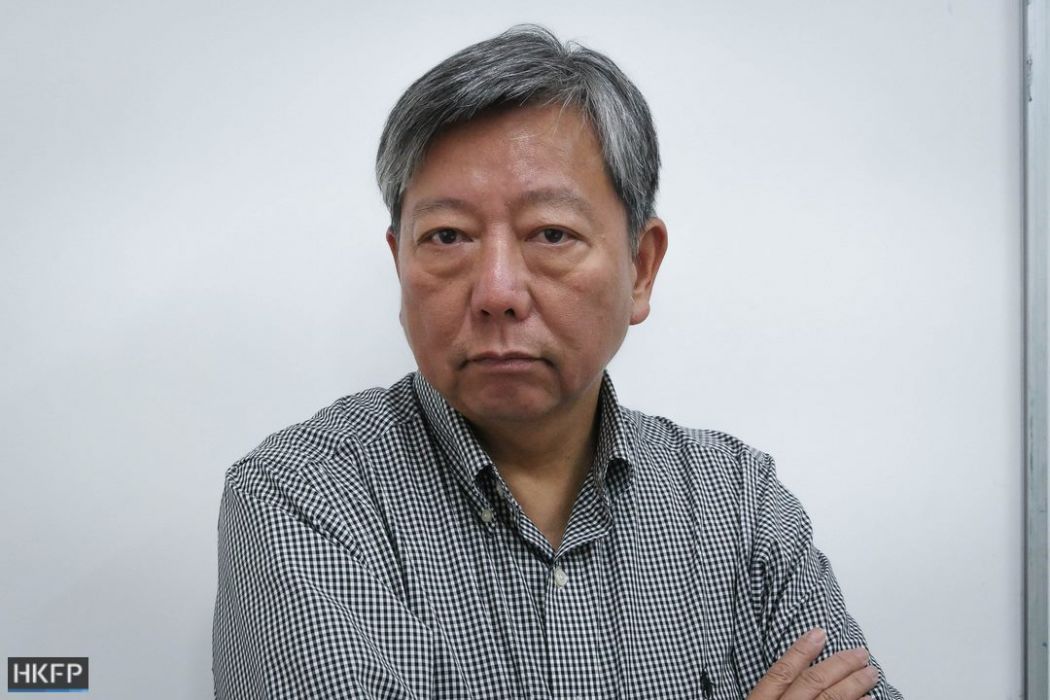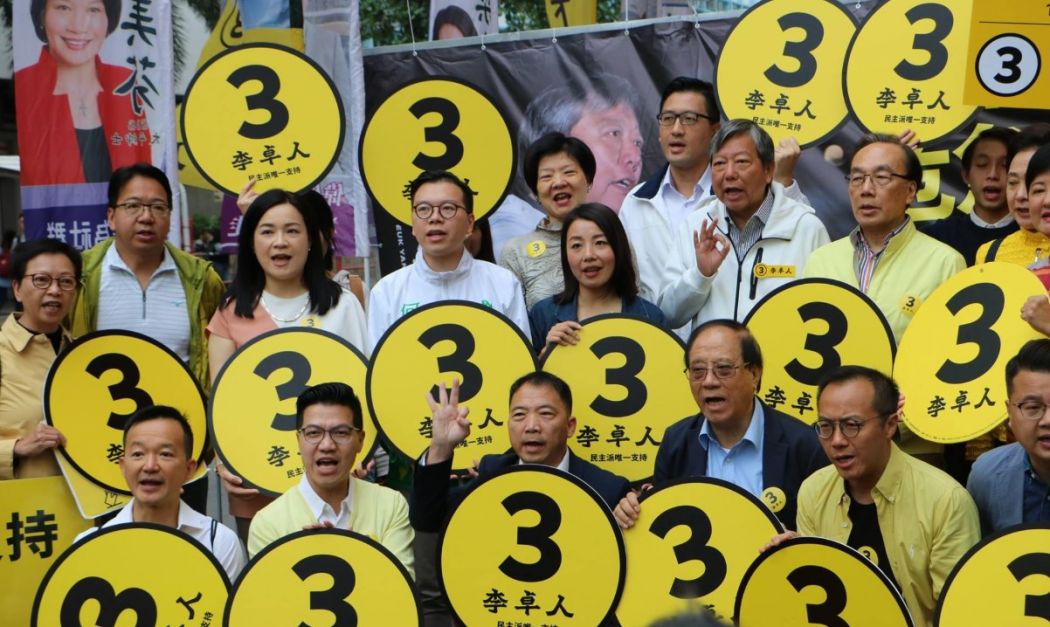Veteran activist Lee Cheuk-yan has spent the past three decades resisting authoritarianism.
In 1989, roused by the rallying cries for democracy, the then 32-year-old travelled to Tiananmen Square to deliver donations raised during a Hong Kong benefit concert to protesters. He was detained and made to sign a letter of remorse, around the time the tanks rolled in to crush the burgeoning movement. Hundreds, perhaps thousands, of people died on June 4, when the People’s Liberation Army was deployed to halt months of student-led demonstrations.

These days Lee, 62, is a regular face at Hong Kong protests. The former legislator has carved out a reputation as an archival activist for the crackdown, despite the Chinese government’s attempts to censor it. As a governing committee member, he has organised events with the Hong Kong Alliance in Support of Patriotic Democratic Movements in China to commemorate victims of the massacre. He has also helped to set up a museum dedicated to housing its historic artefacts, including an army bullet that was lodged in activist Zhang Jian’s leg.
But the fervour that drove Lee to the streets of Beijing 30 years ago has remained unshaken. He has campaigned year in, year out for justice: “June 4 has everything to do with today,” he told HKFP ahead of the 30th anniversary of the massacre. “It’s a contemporary struggle because it’s the same oppressor, it’s the same dictatorship, it’s the same logic of authoritarian rule.”
‘Rule by fear’
This year, the turnout at Tuesday’s night’s commemorative Tiananmen vigil is expected to be bolstered by anger over the upcoming extradition bill. Hong Kong proposed legal amendments in February to allow the city to handle case-by-case extradition requests from jurisdictions with no prior agreements, most notably China and Taiwan. The bill, which could reach a final vote before the current legislative period ends in July, would enable the chief executive and local courts to handle extradition requests without legislative oversight. But critics have raised concerns over the risk of residents being extradited to the mainland.

An annual march last Monday calling for the vindication of the 1989 atrocity was flooded with signs reading “oppose the evil extradition law.” Lee said the massacre and the extradition bill are related as both are attempts by Beijing to quash dissent. He added that he was concerned the bill could deter the public from protesting in the future for fear of retribution.
“The rule of law, if the extradition bill passes, will become the rule by fear because then it has a chilling effect for anyone in Hong Kong, so people will have self-censorship,” he explained. “It is revenge against all activists… like a knife hanging by your neck.”

Lee added that the controversial bill was a deliberate attempt by authorities to coarsen debate between already divided political factions. “It’s the regime, the system that’s creating the infighting which is unfair,” he said in reference to a physical skirmish that broke out in the legislature last month over who had the authority to convene a bills committee meeting to vet the bill.
The activist said that public discontent over the extradition amendments boils down to lack of trust in Hong Kong’s courts and political system. He pointed to the case of Ray Wong and Alan Li of the pro-independence group Hong Kong Indigenous. It was revealed last month that the pair, who were facing rioting charges related to the 2016 Mong Kok unrest, fled the city in November 2017 ahead of their trials and were granted refugee status in Germany last May.

“It is a fact of life now that Hong Kong is being so suppressed by the Communist Party that the law can no longer be trusted,” Lee said. “This is really a damaging and dangerous situation.”
By-election loss
Lee has refocused his energies on social activism and said that he would not run again for office following his bitter by-election loss last November. The politician had replaced his Labour Party colleague Lau Siu-lai in the Kowloon West by-election after she was disqualified in October for allegedly advocating self-determination. His main pro-Beijing rival Rebecca Chan won by over 13,000 votes, while Lee lost significantly in grassroots areas, according to polling figures.

In a lengthy press conference, pan-democrats admitted a by-election “wipe-out,” with some lawmakers attributing the defeat to blank votes, vote-splitting, unscrupulous campaign tactics, as well as the resources of the pro-Beijing camp.
When asked if his team shoulders some responsibility for the election loss, Lee was initially reticent but forthright: “We have to take the blame of not being able to mobilise people in the election to vote because they lost the confidence in the pan-democrats,” he said. “In politics, I think we have to fight and win back the heart of the people.”
Lee put the low turnout rate for pro-democracy supporters down to voter apathy. “Apathy is something I can understand,” he said. “When you’re always on the losing side, don’t win, then disappointment and frustration and that will lead to apathy.”
But despite the by-election loss, the activist remains steadfast in his resolve. “For the pan-democrats, it’s the issue that matters,” he said. “When people really care they will think it is good that we are able to fight back for them.”
